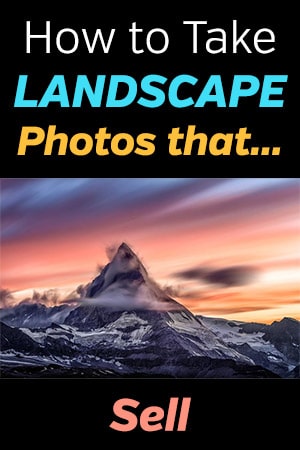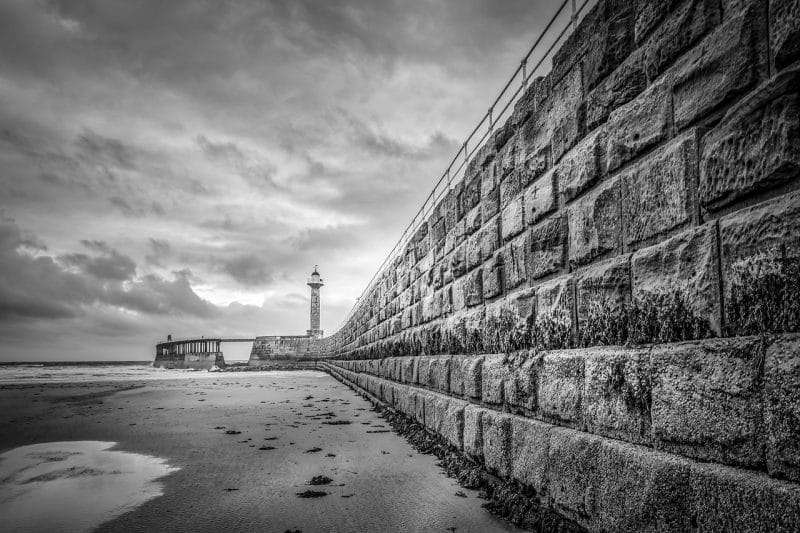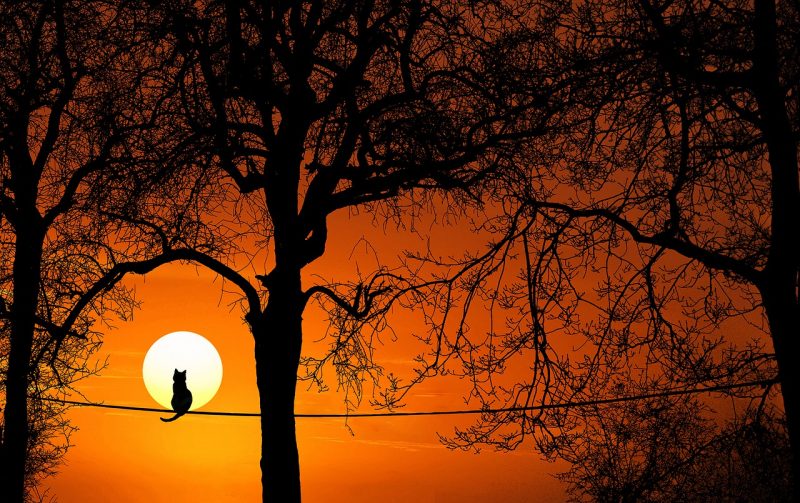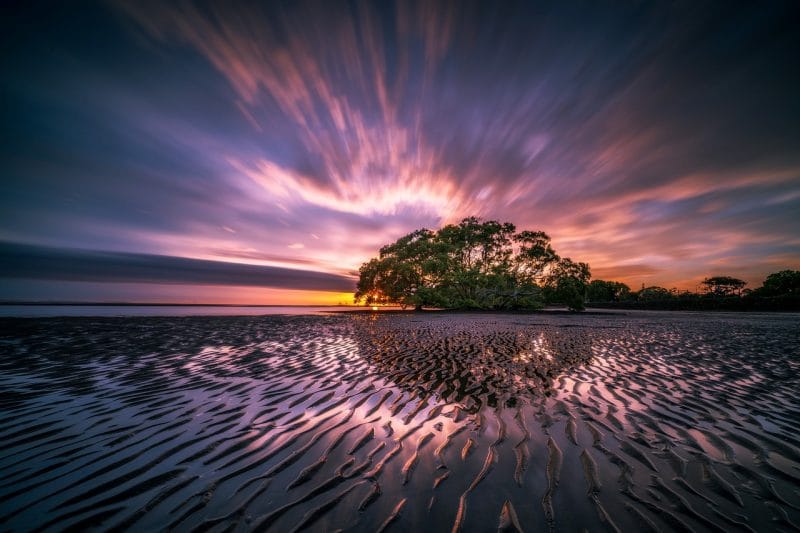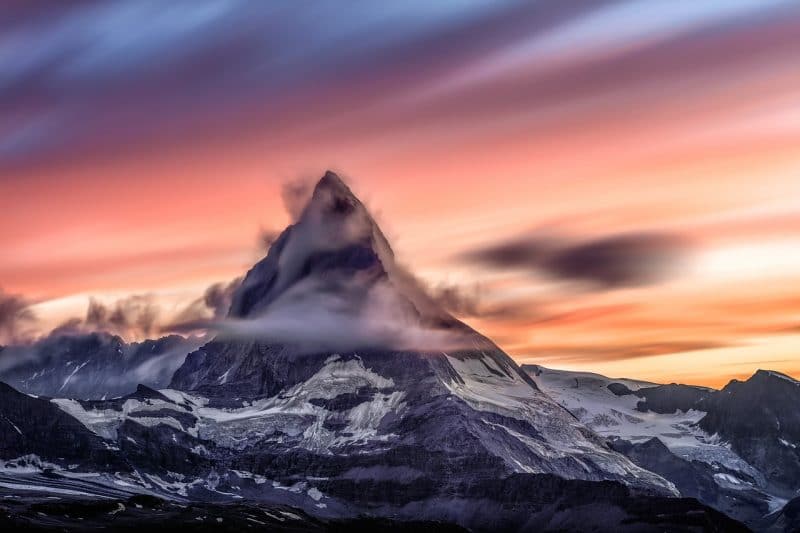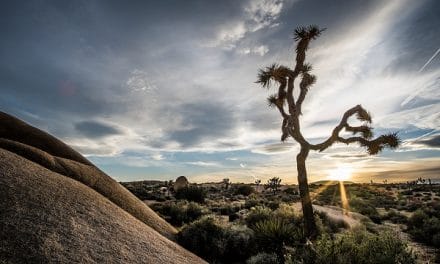Photo by kordi_vahle / CC0
Landscape photos are some of the most common images you will see in galleries and other places that sell images. Even the wall art section of your local department store will have a large number of landscape photos. They are innately appealing, but why? What are the reasons these images tend to do well and how can we take our own landscape photos to sell? Let’s have a look at some important tricks of the trade.
Try to Nail the Composition Elements
We really need to nail composition if we’re going to try and sell our images. And two of the best ways to do so are to spend time looking at leading lines and the Golden Ratio. Leading lines are elements of a scene that draw the eye in a particular path. Often an image employs leading lines without the photographer even realizing s/he’s using them. These lines are what makes images of train tracks and roads vanishing into the horizon so appealing.
Photo by 12019 / CC0
Sometimes these man-made lines apply to natural landscapes but often they aren’t around or are even distracting. Instead, you can utilize features such as the horizon, bodies of water, tree lines, mountain ranges, cloud orientation…The possibilities truly are endless. Remember also that leading lines don’t have to necessarily encompass the subject. They can even direct the viewer towards the main subject.
Photo by TimHill / CC0
The Golden Ratio is sometimes known as Phi, the Divine Proportion, or Fibonacci’s Ratio. Mathematically, we can describe the Golden Ratio as 1:1.618. And poetically it can be described as a literal formula for beauty. Phi is a representation of proportions found all over nature. Many natural subjects such as the shell of a nautilus or the petals and interior of sunflowers grow in this way. And these patterns are somehow intuitively beautiful to the human viewer.
To use this in landscape photography, if my camera is equipped with them I can use Phi lines. But if not, using our imagination will work just as well once I’ve practiced with it some. Phi lines are almost identical to the lines of the Rule of Thirds. The difference is that the middle sections are much smaller because the ratio for each section is 1:.618:1. With the Rule of Thirds, the ratio is instead 1:1:1, which gives equal portions.
Photo by NDV / CC0
You can use the Golden Ratio in almost exactly the same way as you would with the Rule of Thirds. You want to frame the subject(s) in such a way that the points of interest coincide with the intersecting points.
The Golden Ratio is a slightly subtler adjustment than the Rule of Thirds so it’s often much easier to apply post-shoot with computer editing instead. Fortunately, many editing programs like Lightroom have Golden Ratio overlays to help you nail the composition. So if it seems confusing to try and apply Phi lines mentally, don’t despair. Simply use the far more common Rule of Thirds. The Rule of Thirds is a fine approximation of the Golden Ratio that you can use while shooting. Later you can fine-tune the images using the Golden Ratio for maximum impact.
Photo by Bess-Hamiti / CC0
Tripods are Mandatory
A tripod should be part of the gear of a landscape photographer no matter what. But when it comes to capturing images that we intend to sell, we need to eke out every little bit of sharpness that we can. Modern-day sensor and in-lens image stabilization can work wonders when shooting handheld. But considering the amount of time it takes to properly frame, capture, re-frame, adjust aperture, re-shoot, etc…There’s no reason we can’t at least eliminate hand shake as a blur factor. Especially as we start adjusting elements of the exposure triangle. Shutter speed, in particular, will start to be affected by hand shake the slower the speed becomes. Image stabilization helps with this. But no amount of IS is going to help when you’re trying for a 3-second exposure on a beach to smoothen out the water. Sometimes adjusting aperture or ISO to compensate isn’t the answer. So don’t forget the tripod if you’re looking to generate images that sell.
→ Related reading: 11 Steps to Tack Sharp Landscape Photos
Photo by strikers / CC0
Go for the “Wow!” Factor in Location and Presentation
Photos that sell tend to be scenes that the buyer would likely never experience on their own. A photo from your trip to the Rockies can be technically perfect and absolutely beautiful. But capturing the moment the morning light hits the east face of the uniquely shaped Matterhorn or a flotilla of icebergs in Antarctica are another matter. These photos are more likely to sell because so few of us are going to see these experiences. They have a much greater emotional impact and are much more likely to result in a sale.
Photo by Pexels / CC0
Even after you’ve captured the perfect moment and printed it on the finest paper, what now? You want to consider the mat and/or frame as well. Photo mats come in a variety of sizes, thicknesses, and colors, and can greatly enhance – or take away from – the subject image. We want to preserve the overall aesthetic of the image so the mat color should match that of the subject or background elements. Therefore, a blue mat would work well with a blue subject or blue ocean and sky background. Frames come in an assortment of shapes and colors as well. But unless you are buying the photo for yourself it’s better to stick with a plain frame that won’t distract from the mat and image much. Many photographers opt to leave out the frame entirely and stick with a mat to enhance and sell along with the main image.
Conclusion
Finding a great location to shoot is only the very first step of taking landscape photos that sell. We need to make sure we can capture that scene in a way that draws the attention of our audience. We want to make sure we have all of the sharpness we can for detail preservation. And we should consider how to best present image with a mat or frame. Fortunately, landscape photography is one of the best selling genres; everyone wants beautiful pieces like the ones above gracing their living room walls. So get out there and try your best to create some images that sell today!
